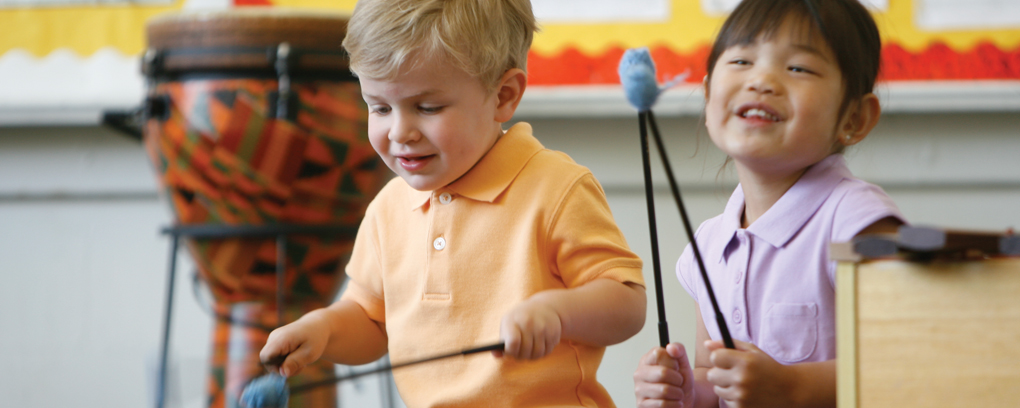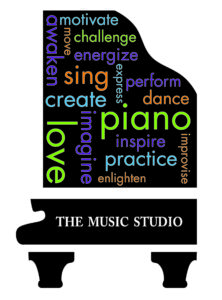You are more than welcome to call us (518-459-7799) or email us through our Contact page, but first you may want to check to see if we’ve answered your question already.
Young children are remarkably able to absorb information and naturally inclined toward music. We offer developmentally appropriate classes for children as young as age 2; see our Music for the Young classes for a full listing. As for our school-year program, we’ve had children as young as age 3 ½ join our Foundation Program, although children typically begin at age 4 through 8. If you’re not sure whether your child is ready, please give us a call to sign up for an Open House or speak with our director, Noel Liberty, about placement.
Unfortunately, no. He is welcome to take private piano lessons from our marvelous faculty during the summer, but our school-year Piano Program is reserved for those students who have completed the Foundation. We are happy to recommend other fine local piano teachers; just call us at 518-459-7799.
All the classes in our Foundation Program meet September through June. But we also have short-term classes running throughout the year for young children (ages 2 through 7) and adults. During the summer, we have camps, classes, and lessons for all ages.
There are three ways to do that.
- You can visit a class; simply call our office at (518) 459-7799 to reserve a spot in a class involving children at an age similar to that of your child.
- You can also bring your child to an Open House, where we conduct “mini-classes” where children and parents actually get to participate. It’s not exactly the same (our normal classes are limited to just 8 students) but it will give you and your child a taste of what a class is like. We hold Open Houses in late summer and late spring. Call for dates, or email us through our Contact Us page and we’ll let you know when the next one happens.
- You can enroll your child in one of our Music for the Young Classes. Those for slightly older children (3 through 7) will give you a good idea of the pace and scope of our school-year classes, but in a short-term form.
Our Foundation Program uses all sorts of instruments, and teaches concepts and skills that underlie music making of every kind: rhythm, pitch, dynamics, note reading, ear training, and so on. Children who have completed the Foundation find they can take up new instruments almost effortlessly. However, the piano is the only instrument for which we offer specific instruction and private lessons. Children who go through our program will master the piano; but all other instruments will be within their grasp.
Music for the Young, Foundation Program, and Recreational Piano classes are limited to 8 students per class and are sometimes smaller.
No, they will need to be in separate classes. Our classes are made up of students of like ages, as young children develop so quickly, their attention spans, learning styles, musical tastes, and mental capacities are amazingly different. Even though your 4-year-old and 6-year-old will learn the same thing, they won’t learn it at the same pace or in the same way. Our instruction, class structure, and activities are different for different ages.
Parents are absolutely vital in the music education of their children. For the youngest students, parents are the comfort zone, audience, and cheering section. Their presence and their interest underscore the importance of music not just as a subject matter but as a medium of connection and communication. As the Foundation continues, and weekly lessons become more complex and challenging, parents help their children apply their classroom lessons to their daily practice.
Of course, but just know that she can’t be part of the class itself. Bring some quiet toys for her to play with or let her play with the basket of quiet toys we have in the corner of each classroom to keep busy.
Not to start with, but he or she certainly needs a keyboard. Having a keyboard or piano helps music become part of your child’s everyday life and allows unfettered exploration of the instrument (which can be difficult to do in class as the activities are very structured). Your child will enjoy simply playing the keyboard or piano and, eventually, he or she will need to practice, too.
If you are going to buy a keyboard, get one that has keys the same size as regular piano keys. Choose an instrument with as close to 88 keys as possible and avoid any instrument that has fewer than 61 keys. Craigslist is a good source for used keyboards.
An acoustic piano will be necessary once your child begins The Piano Program. The touch, action, and tone are so different between acoustic pianos and even the more expensive digital instruments that we require our students practice on an acoustic piano. Ask us if you are in the market: often people advertise pianos that they are selling on bulletin boards at The Music Studio, or they simply let us know in the office. Good pianos can also be found on Craigslist. Please have a piano tuner inspect an instrument you are considering buying.
Younger children are fascinated by other children and, compared to older students, have shorter attention spans. Group music lessons—in which students can interact with other children, learn from watching them, move around frequently, regroup with their parents, and change activities more often—make good sense at younger ages.
Older children, however, are more able and more prepared to handle individual challenges. Improvements in their ability to read and to focus allow them to take on more ambitious musical pieces and make more sustained effort. That’s why, after our Foundation Program, our students move on to private piano instruction.
But even in The Piano Program, older students can benefit from occasional group lessons, partly to counter the solitude that is sometimes part of piano study. By meeting with their peers, students also learn that everyone faces a variation on the problem they’re facing. Just as getting together with their friends at lunch can help a teen or ’tween get through a school day that seems harder than usual, getting together regularly for Piano Class can help that same student get through the inevitable rough patch in music lessons.

